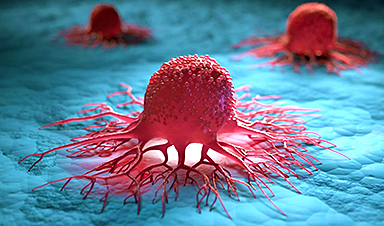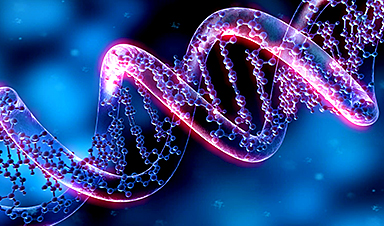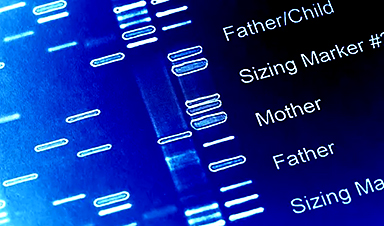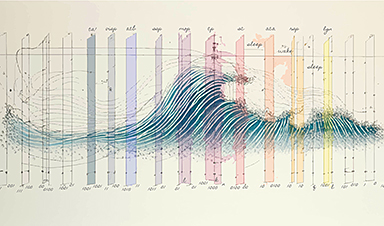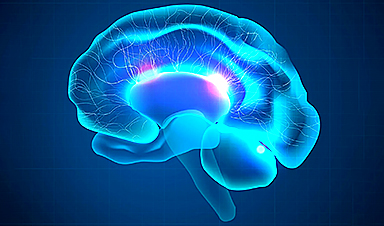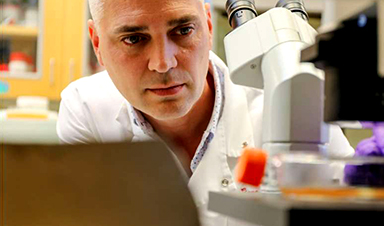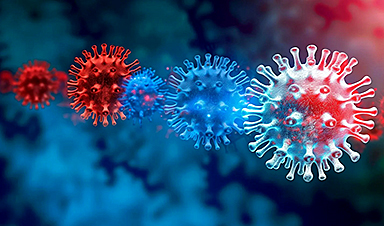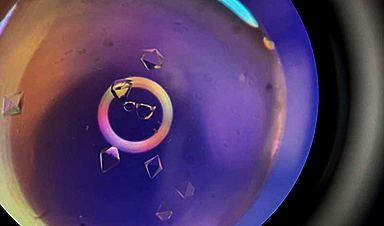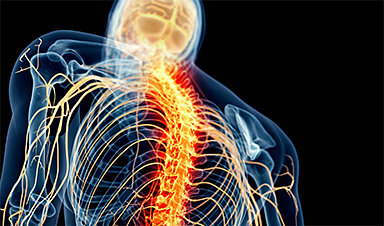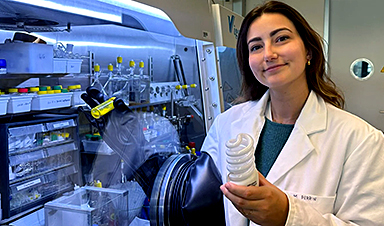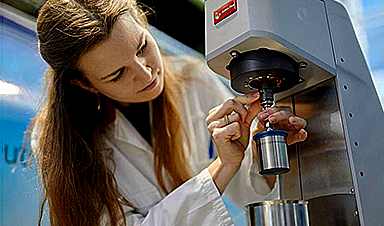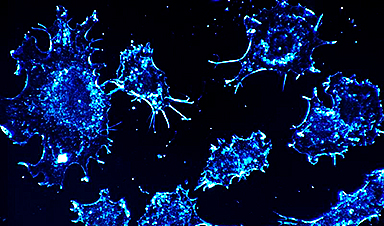A new study from Lund University in Sweden suggests that tattoos could be a risk factor for cancer in the lymphatic system, or lymphoma. Now, the researchers underline the need for more research on the topic.
Our understanding of the long-term health impacts of tattoos is currently limited, with minimal research in this field. A research team at Lund University has now examined the potential link between tattoos and lymphoma.
“We have identified people diagnosed with lymphoma via population registers. These individuals were then matched with a control group of the same sex and age, but without lymphoma. The study participants answered a questionnaire about lifestyle factors to determine whether they were tattooed or not,” says Christel Nielsen, the researcher at Lund University who led the study.
In total, the entire study included 11,905 people. Of these, 2,938 people had lymphoma when they were between 20 and 60 years old. Among them, 1,398 people answered the questionnaire, while the number of participants in the control group was 4,193. In the group with lymphoma, 21 percent were tattooed (289 individuals), while 18 percent were tattooed in the control group without a lymphoma diagnosis (735 individuals).
Findings on Tattoo Risk and Lymphoma
“After taking into account other relevant factors, such as smoking and age, we found that the risk of developing lymphoma was 21 percent higher among those who were tattooed. It is important to remember that lymphoma is a rare disease and that our results apply at the group level. The results now need to be verified and investigated further in other studies and such research is ongoing,” says Christel Nielsen.
A hypothesis that Christel Nielsen’s research group had before the study was that the size of the tattoo would affect the lymphoma risk. They thought that a full-body tattoo might be associated with a greater risk of cancer compared to a small butterfly on the shoulder, for example. Unexpectedly, the area of the tattooed body surface turned out not to matter.
“We do not yet know why this was the case. One can only speculate that a tattoo, regardless of size, triggers a low-grade inflammation in the body, which in turn can trigger cancer. The picture is thus more complex than we initially thought.”
Dr Nielsen comments on the new study. Credit: Lund University
Most people get their first tattoo at a young age, which means that you are exposed to tattoo ink for a large part of your life. Even so, research has only scratched the surface of the long-term health effects of tattoos.
“We already know that when the tattoo ink is injected into the skin, the body interprets this as something foreign that should not be there, and the immune system is activated. A large part of the ink is transported away from the skin, to the lymph nodes where it is deposited”, says Christel Nielsen.
The research group will now proceed with studies of whether there is any association between tattoos and other types of cancer. They also want to do further research on other inflammatory diseases to see if there is a link to tattoos.
“People will likely want to continue to express their identity through tattoos, and therefore it is very important that we as a society can make sure that it is safe. For the individual, it is good to know that tattoos can affect your health, and that you should turn to your health care provider if you experience symptoms that you believe could be related to your tattoo,” concludes Christel Nielsen.
Reference: “Tattoos as a risk factor for malignant lymphoma: a population-based case–control study” by Christel Nielsen, Mats Jerkeman and Anna Saxne Jöud, 21 May 2024, eClinicalMedicine.
DOI: 10.1016/j.eclinm.2024.102649
News
The Silent Battle Within: How Your Organs Choose Between Mom and Dad’s Genes
Research reveals that selective expression of maternal or paternal X chromosomes varies by organ, driven by cellular competition. A new study published today (July 26) in Nature Genetics by the Lymphoid Development Group at the MRC [...]
Study identifies genes increasing risk of severe COVID-19
Whether or not a person becomes seriously ill with COVID-19 depends, among other things, on genetic factors. With this in mind, researchers from the University Hospital Bonn (UKB) and the University of Bonn, in [...]
Small regions of the brain can take micro-naps while the rest of the brain is awake and vice versa
Sleep and wake: They're totally distinct states of being that define the boundaries of our daily lives. For years, scientists have measured the difference between these instinctual brain processes by observing brain waves, with [...]
Redefining Consciousness: Small Regions of the Brain Can Take Micro-Naps While the Rest of the Brain Is Awake
The study broadly reveals how fast brain waves, previously overlooked, establish fundamental patterns of sleep and wakefulness. Scientists have developed a new method to analyze sleep and wake states by detecting ultra-fast neuronal activity [...]
AI Reveals Health Secrets Through Facial Temperature Mapping
Researchers have found that different facial temperatures correlate with chronic illnesses like diabetes and high blood pressure, and these can be detected using AI with thermal cameras. They highlight the potential of this technology [...]
Breakthrough in aging research: Blocking IL-11 extends lifespan and improves health in mice
In a recent study published in the journal Nature, a team of researchers used murine models and various pharmacological and genetic approaches to examine whether pro-inflammatory signaling involving interleukin (IL)-11, which activates signaling molecules such [...]
Promise for a universal influenza vaccine: Scientists validate theory using 1918 flu virus
New research led by Oregon Health & Science University reveals a promising approach to developing a universal influenza vaccine—a so-called "one and done" vaccine that confers lifetime immunity against an evolving virus. The study, [...]
New Projects Aim To Pioneer the Future of Neuroscience
One study will investigate the alterations in brain activity at the cellular level caused by psilocybin, the psychoactive substance found in “magic mushrooms.” How do neurons respond to the effects of magic mushrooms? What [...]
Decoding the Decline: Scientific Insights Into Long COVID’s Retreat
Research indicates a significant reduction in long COVID risk, largely due to vaccination and the virus’s evolution. The study analyzes data from over 441,000 veterans, showing lower rates of long COVID among vaccinated individuals compared [...]
Silicon Transformed: A Breakthrough in Laser Nanofabrication
A new method enables precise nanofabrication inside silicon using spatial light modulation and laser pulses, creating advanced nanostructures for potential use in electronics and photonics. Silicon, the cornerstone of modern electronics, photovoltaics, and photonics, [...]
Caught in the actinium: New research could help design better cancer treatments
The element actinium was first discovered at the turn of the 20th century, but even now, nearly 125 years later, researchers still don't have a good grasp on the metal's chemistry. That's because actinium [...]
Innovative Light-Controlled Drugs Could Revolutionize Neuropathic Pain Treatment
A team of researchers from the Institute for Bioengineering of Catalonia (IBEC) has developed light-activated derivatives of the anti-epileptic drug carbamazepine to treat neuropathic pain. Light can be harnessed to target drugs to specific [...]
Green Gold: Turning E-Waste Into a Treasure Trove of Rare Earth Metals
Scientists are developing a process inspired by nature that efficiently recovers europium from old fluorescent lamps. The approach could lead to the long-awaited recycling of rare earth metals. A small molecule that naturally serves [...]
Cambridge Study: AI Chatbots Have an “Empathy Gap,” and It Could Be Dangerous
A new study suggests a framework for “Child Safe AI” in response to recent incidents showing that many children perceive chatbots as quasi-human and reliable. A study has indicated that AI chatbots often exhibit [...]
Nanoparticle-based delivery system could offer treatment for diabetics with rare insulin allergy
Up to 3% of people with diabetes have an allergic reaction to insulin. A team at Forschungszentrum Jülich has now studied a method that could be used to deliver the active substance into the [...]
Nanorobot kills cancer cells in mice with hidden weapon
Researchers at Karolinska Institutet in Sweden have developed nanorobots that kill cancer cells in mice. The robot's weapon is hidden in a nanostructure and is exposed only in the tumor microenvironment, sparing healthy cells. [...]
